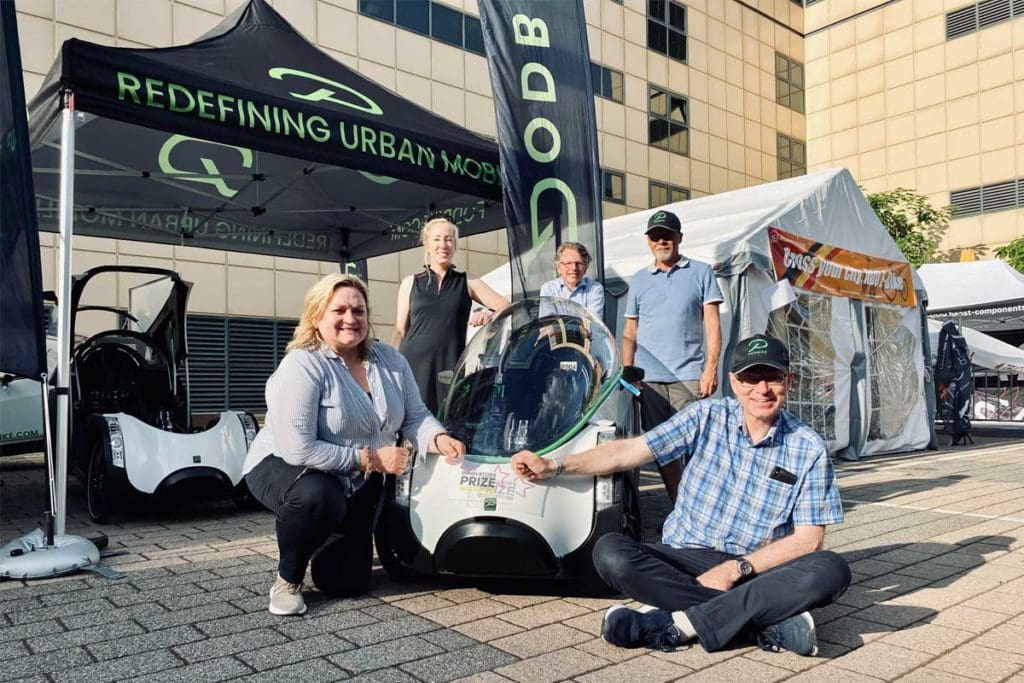Podbike Starts Deliveries to Customers

Stavanger, Norway
Norway’s Podbike has finally started delivering its Frikar light electric vehicle to customers, eight years after cofounder Per Hassel Sørensen embarked on a journey to build a better bike.
“After all the stops and starts, engineering challenges, a global pandemic, a shortage of computer chips, and a painful trimming of staff last year to keep our cash-burn low, the very first Podbike Frikar is now in the hands of its new owner,” the company exclaimed in a statement issued after its first delivery on 1st February.
While Podbike won two prizes at last year’s Scandinavian Business Awards – for Most Innovative Urban Mobility Company 2022 and E-Bike of the Year – the company was battling late obstacles to getting the Frikar out to market.
Determined to regularly inform the 3,600 people on its waiting list, the company updates to subscribers were candid in revealing the technical and financial challenges it was facing.
While Podbike says it was worried those updates might prompt people on the pre-order list to “abandon our great project, too frustrated to wait any longer”, the actual response was very different.
“One Podbike alone does not a production line maketh … but one Podbike is certainly a stable foundation upon which to build a business.”
While a few customers were angered by the extra delays and price increases, the much greater response was a surge of support urging Podbike to stay the course.
“Instead of customers cancelling pre-orders over the last two years as we wrestled with design and supply chain challenges, we actually received more purchase requests than we could handle,” the company says.
“This enthusiasm sustained us because it showed there is a sizeable and committed market for green mobility.
“One Podbike alone does not a production line maketh however’, as they say in the classics. Or maybe it was Yoda. But one Podbike is certainly a stable foundation upon which to build a business!” the company joked.
It says the company’s financial position became so tight, it had to choose between participating in trade shows and simply focusing on production of the Frikar.
“We trimmed our team to the bare bone last year to preserve cash. If we sent our crew on the road, production would stop,” the statement says.
The four-wheeled Frikar has two motors, one on each rear wheel and powered by series hybrid propulsion that uses wires to link the pedals to the driving wheels rather than a direct mechanical linkage such as a chain.
The dual 250-watt motors are limited to power assist up to 25kmh and the Frikar has a battery system specially designed for chilly Nordic condition.
